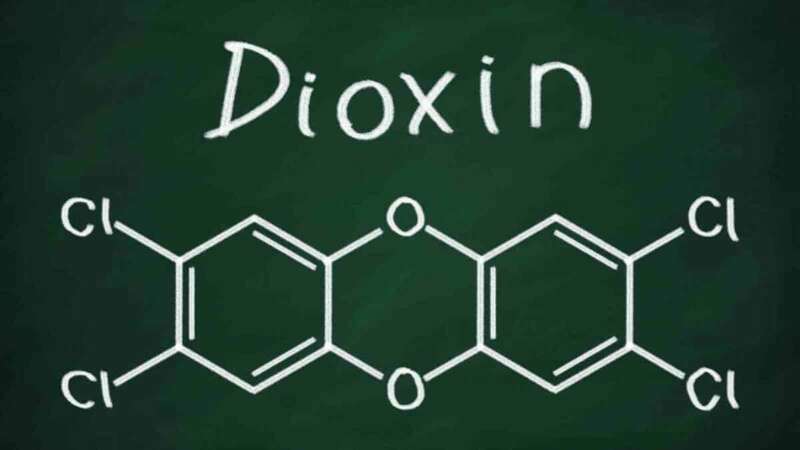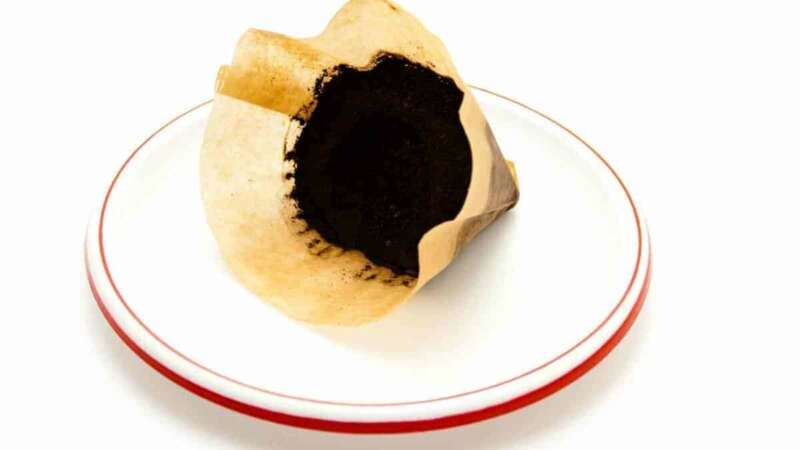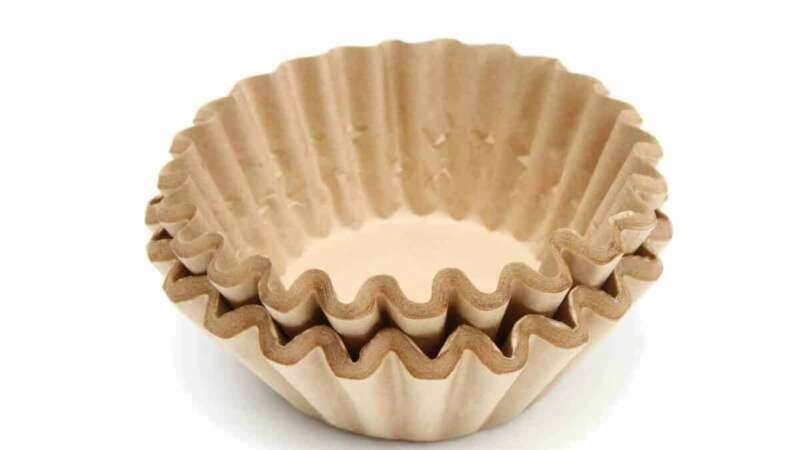Would you add bleach to your coffee? No? What about bleached filter paper? You may not realize it, but white paper coffee filters have all been through an industrial bleaching process that creates extremely toxic chemical byproducts, and you’re putting it in your cup of coffee every morning!
So what’s the deal with bleached filters, are bleached coffee filters safe to use, or should you avoid them?
Bleached white coffee filters are safe to use, although the bleaching process creates toxic pollutant byproducts called dioxins that can harm the environment.
Dioxins are found in most food, including meat and dairy products, and the very small concentrations found in bleached coffee filters have been proven to be safe for humans.
In this article, I’ll go over the safety and environmental concerns that exist around bleached filters, look at some alternative types of coffee filters, and explore the advantages and disadvantages of each, and give you all the info you need to make an informed choice for yourself.
Bleached Coffee Filters Safety Concerns
The biggest concern about bleached coffee filters is that there are potentially harmful chemicals created as a byproduct of the bleaching process that may make their way into the final filter product.
The most dangerous chemical byproducts of the paper bleaching process are called dioxins.

What are Dioxins and How Do They Affect Humans?
Dioxins are a group of chemically similar compounds that are highly toxic and present a real risk to human health and the environment.
They are the unwanted toxic byproducts of many industrial processes, including the popular process of bleaching paper pulp using chlorine.
According to the World Health Organization, dioxins are omnipresent in today’s world.
They are found in most food sources and all humans have a tolerance for dioxins, meaning they are not a risk at low levels, however at higher doses dioxins can cause serious health problems.
Potential dangers of high levels of dioxin exposure can cause:
- Reproductive problems
- Developmental disorders
- Weakened Immune System
- Hormonal Imbalances
- Potentially carcinogenic
Source: World Health Organization – Dioxin Fact Sheet
Are Dioxins Found in Coffee Filters?
Yes, a small concentration of dioxins is present in bleached coffee filters, but there have been several reports and studies that have concluded that the levels present in coffee filters are not high enough to pose any risk to humans.
In a 1989 study published in the scientific toxicology journal Chemosphere, it was found that regular consumption of coffee using chlorine-bleached coffee filters presented no significant health risk to coffee drinkers. (source)
The consumption of bleached pulp-based filter-brewed coffee does not present any significant health risk to the coffee consumer.”
This finding is backed up by a separate report from the US Environmental Protection Agency, carried out in 1990 which concluded that the levels of dioxins found in paper products including coffee filters was too small to pose any health risk to humans.
Are Bleached Coffee Filters Toxic?
Bleached coffee filters contain a very tiny concentration of a toxin called dioxin which is created during the bleaching process, however, the amount is so small that it has been deemed to have no impact on human health by both toxicology researchers and the US. Environmental Protection Agency.

Chlorine Bleaching vs ECF Bleaching vs Oxygen Bleaching
Not all paper filters contain dioxin. In paper products, dioxin is formed as the result of a chemical bleaching process involving chlorine, however, there are other ways to bleach paper that are less harmful than traditional elemental chlorine bleaching.
One such method is Elemental Chlorine Free (ECF) bleaching, which uses a chlorine dioxide solution to bleach the pulp instead of elemental chlorine.
The result of this process is that fewer dioxins are produced, resulting in less environmental pollution and fewer dioxins in the final paper product.
The effects of the new process were investigated in 2019 and published in the toxicology journal Chemosphere, where it was found that using ECF bleaching reduced, but did not eliminate dioxin production. (source)
Another method used to bleach coffee filters is Oxygen Bleaching. This process uses hydrogen peroxide to oxidize the paper’s cellulose fibers, making them white.
Are Brown Coffee Filters Safer Than White Coffee Filters?
Brown coffee filters aren’t any safer than white coffee filters in terms of drinking coffee, but the manufacturing process for white coffee filters produces more toxic byproducts called dioxins which can harm the local environment and anyone living near the paper mill where the filters are made.
Although white paper filters contain a very small amount of dioxins due to the bleaching process, several studies have confirmed that the amount present is not enough to have any health effects, therefore bleached filters are not any more or less healthy than unbleached coffee filters.
Are All White Coffee Filters Bleached?
All pure white paper coffee filters are bleached, however, there are some slightly off-white filters such as cloth filters and natural bamboo filters which are not bleached.
It’s usually obvious which filters have been bleached since the filters will be white like printing paper.
Natural fibers may look white from a distance, but get up close and you’ll see they are a yellow or brown color.
If you’re concerned about minimizing the environmental impact your filters have, consider picking up a metal filter instead. They are reusable like cloth filters but are much easier to keep clean.

Advantages of Bleached Coffee Filters
There are no functional differences between bleached and unbleached paper filters. Both are made from the same material.
The advantage of using a bleached filter is that it does not leave any papery flavors in your cup of coffee, which some people claim unbleached filters sometimes do.
Do Bleached Coffee Filters Affect the Taste?
There’s some debate over whether or not using a bleached filter improves the taste of your coffee, with some saying unbleached filters leave a papery taste in their coffee.
Any papery taste caused by certain paper coffee filters is more likely to be caused by the small differences in the construction between different filter brands and has nothing to do with whether or not the filter is bleached.
This is because small differences in filter construction can have an impact on what size of particles can pass through it, and can also trap different amounts of oil from passing through, both of which affect the taste of your coffee.
For example, thicker filters trap larger particles, and filters made using smaller, more densely packed fibers trap more oil than larger fibers.
How To Remove the Paper Taste from your Coffee
If you’re getting any unwanted taste from your coffee filters, the first thing to do is change your filter brand.
Different brands are constructed differently and let different microscopic coffee grounds pass through them and trap different volumes of oil.
If you’re getting a papery taste from your filter, wet it before you use it to get rid of the paper taste.
Coffee filters are cheap, so pick up a few different options and test out which type works best for you.
If you’re struggling with paper filters, you might want to consider another brewing method.
Nowadays, there are disposable and reusable filters made from all kinds of materials, and each of them brews a slightly different flavor.
Bleached Paper Coffee Filter Alternatives
If you have health concerns about bleached paper filters, or you want to help protect the environment by not supporting products that release toxic pollutants into the ecosystem, you may want to try one of the hundreds of other types of coffee filters available.
Let’s take a look at some of the most popular alternatives to bleached paper filters.
| Filter Material | Advantages | Disadvantages |
| Non-Bleached / Natural Paper Coffee Filter | Inexpensive, compostable. | May leave a papery taste in your coffee, not reusable. |
| Metal Coffee Filters | Reusable, stronger-tasting coffee, easy to clean. | Metal filters let a lot more coffee oils through, resulting in a stronger taste but more calories per cup. |
| Cloth Coffee Filters | Reusable creates strong-tasting coffee similar to metal filters. | Difficult to clean, must be boiled occasionally. Don’t last as long as metal filters. |
| Bamboo Coffee Filters | Longer fibers than paper filters, resulting in a slightly different taste. Compostable. | Slightly more expensive than paper filters. Not reusable. |
Should You Use Bleached Coffee Filters?
To sum up, although there are some seriously dangerous byproducts created during the bleaching process used to make white paper coffee filters, the filters themselves don’t pose any health risk.
White filters are just as healthy as brown unbleached filters, however, the manufacturing process for bleached filters causes more damage to the environment, due to toxic pollutants called dioxins which are created as a result of the bleaching process.
If you’re a bleached filter user and want to try something new, why not make the switch to unbleached coffee filters or perhaps reusable filters instead?
Alternatively, when you are shopping for white paper filters, make sure you get oxygen bleached paper filters. Check the packaging. It should specify which process was used.
Each filter has its own unique taste profile, you might just find your new favorite brew!
